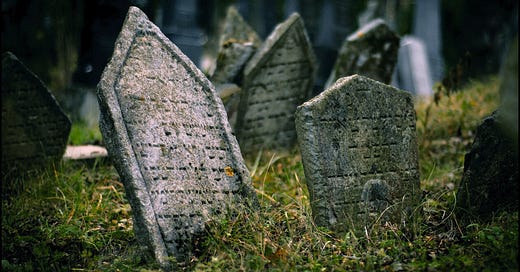What Goes Into the Grave
On celebrity deaths, the virtual reality machine that is imagination, and the foreclosing of certain possibilities.
Thanks to the labyrinthine infinity of YouTube, I can still find unseen snippets of Christopher Hitchens’ innumerable speeches and debates. Some years after I’d devoured the bulk of Hitchens’ output, I found a video of his talk at Hay Festival in 2010, a year before he died.
In the talk, Hitchens confessed that he’d recently been to evensong at a nearby cathedral. He delivered a punchline, and the tinny buzz of audience laughter vibrated through my laptop’s speakers, but I wasn’t laughing. I was poised at that numbing precipice from which one falls into sudden, deep disappointment. I replayed the beginning of Hitchens’ story:
“I had the experience last night, last evening, of going into hear evensong at the cathedral in Hereford.”
I was living in Hereford, in an apartment so close to the cathedral that if I stood on the balcony and tricked myself with perspective, I felt I could reach out and ping the church bells in their tower the way you do with a spotless wineglass. If I’d taken a wa…
Keep reading with a 7-day free trial
Subscribe to Volumes. to keep reading this post and get 7 days of free access to the full post archives.





